Table of Contents
- Introduction
- Why Choose Aluminium for DIY Crafts?
- Getting Started: Tools, Safety, and Preparation
- Creative Home Decor Projects
- 4.1 Upcycled Candle Holders
- 4.2 Metallic Wall Art
- 4.3 Custom Photo Frames
- Functional Organization Crafts
- 5.1 Drawer Dividers and Trays
- 5.2 Jewellery and Accessory Organizers
- 5.3 Desk and Office Helpers
- Kid-Friendly and Educational Activities
- 6.1 Science Experiments
- 6.2 Art Projects and Toys
- Seasonal and Gift Ideas
- 7.1 Holiday Ornaments
- 7.2 Handmade Gift Boxes and Tags
- Environmental Impact and Safe Crafting Practices
- Conclusion and Inspiration for Future Crafts
- Related Articles
- References
- Meta Information
Introduction
Every kitchen produces a steady stream of empty food containers, especially the lightweight, shiny Aluminium trays used for takeout, baking, and leftovers. Most of these containers are destined for the recycling bin or landfill, but they have hidden potential beyond their original purpose. With a bit of creativity and some simple tools, leftover Aluminium food containers can become the foundation for a wide variety of DIY crafts—practical, decorative, and fun. This article explores how to transform these everyday items into stylish home decor, organizational aids, and educational projects for the whole family, while promoting sustainable habits and hands-on learning.
Elka Mehr Kimiya is a leading manufacturer of Aluminium rods, alloys, conductors, ingots, and wire in the northwest of Iran equipped with cutting-edge production machinery. Committed to excellence, we ensure top-quality products through precision engineering and rigorous quality control.
Why Choose Aluminium for DIY Crafts?
Aluminium is a remarkable material for creative reuse. Unlike plastic, it is both malleable and strong, allowing crafters to cut, fold, emboss, or punch it into countless shapes and forms. Food containers made from Aluminium are lightweight, non-toxic, and easy to clean, making them suitable for everything from kids’ projects to sophisticated home decor.
Aluminium’s natural sheen gives finished crafts a modern, metallic look without the need for extra paint or varnish. Plus, using leftover containers reduces household waste and teaches valuable lessons about upcycling and resourcefulness¹.
Table 1: Key Properties of Aluminium Food Containers for DIY (Data as of May 2025)¹,²
| Property | Description | Benefit for Crafts |
|---|---|---|
| Malleability | Easily cut, shaped, or embossed | Supports diverse projects |
| Lightweight | Simple to handle, easy to hang | Good for wall/ceiling art |
| Non-toxic | Food-safe material | Safe for most uses |
| Recyclable | 100% Aluminium, endlessly recyclable | Eco-friendly option |
Getting Started: Tools, Safety, and Preparation
Before you jump into crafting, proper preparation is essential to ensure both safety and successful results. Most Aluminium food containers are thin and can develop sharp edges when cut, so always work carefully and supervise children.
Recommended Tools:
- Scissors or craft knife (for cutting)
- Hole punch or awl (for making holes)
- Ruler and marker (for measuring and marking)
- Gloves (to protect hands from sharp edges)
- Sandpaper or nail file (to smooth cut edges)
- Acrylic paints, permanent markers, or glue (for decoration)
Cleaning & Prepping:
- Thoroughly wash and dry each container, removing all food residue.
- Flatten trays if needed by pressing gently with hands or a rolling pin.
- For extra safety, fold or crimp sharp edges with pliers or a butter knife.
Safety Tips:
- Never allow young children to cut Aluminium; adults should handle sharp tools.
- Always smooth or tape over exposed edges before giving crafts to children or displaying in high-traffic areas.
Creative Home Decor Projects
4.1 Upcycled Candle Holders
Leftover Aluminium containers make ideal bases for candle holders, thanks to their heat resistance and shine. Simply cut and shape the containers into cups or wraps for tealights and votives. Decorate with punched patterns to create stunning light effects on your walls.
Step-by-Step:
- Cut the container to desired height.
- Punch holes or emboss patterns with a blunt pencil.
- Paint or decorate as desired.
- Place a candle inside and enjoy the glow.
Example:
A simple rectangular tray, cut and embossed with star patterns, casts a beautiful constellation of lights when used as a tealight cover.
4.2 Metallic Wall Art
Aluminium’s shiny surface is perfect for making unique wall art. You can cut trays into geometric shapes, emboss designs, or even layer several pieces for a 3D effect.
How-to:
- Trace desired shapes on clean Aluminium.
- Cut carefully with scissors.
- Use a ballpoint pen or embossing tool to create texture or patterns.
- Arrange on a canvas or wooden board and glue in place.
Creative Tip:
Try spray painting sections in different colors for a modern, abstract look.
4.3 Custom Photo Frames
Make lightweight, eye-catching photo frames using Aluminium food containers. Cut out a frame shape, decorate the surface, and attach a photo to the back with glue or double-sided tape.
Decorating Ideas:
- Emboss names, dates, or decorative borders.
- Add ribbons, beads, or fabric accents with glue.
- Create a stand by folding part of the tray at a right angle.
Figure 1: DIY photo frame made from an Aluminium food tray (alt text: Homemade metallic frame with a family photo).
Functional Organization Crafts
5.1 Drawer Dividers and Trays
Aluminium containers are ideal for organizing small items in drawers. Simply cut or fold to size, and use to separate jewelry, makeup, office supplies, or even kitchen utensils.
Mechanism:
- The rigid sides keep items in place, while the non-porous surface is easy to wipe clean.
Example:
An Aluminium cupcake tray holds earrings, rings, and brooches, making morning routines faster and neater.
5.2 Jewellery and Accessory Organizers
Fashion simple jewellery stands or catch-all trays from leftover containers. Use a shallow tray as a ring dish, or cut and fold Aluminium strips into stands for bracelets and necklaces.
Personal Touch:
Decorate with paint, paper, or decoupage for a custom look.
Table 2: Organizational DIY Crafts from Aluminium Trays (Data as of May 2025)²,³
| Organizer Type | Method | Best For |
|---|---|---|
| Drawer divider | Cut to size, nest in drawer | Makeup, stationery, tools |
| Jewellery holder | Emboss, fold into shape | Rings, earrings, bracelets |
| Desk tray | Paint and label | Clips, cards, sticky notes |
5.3 Desk and Office Helpers
Tidy up your workspace with custom desk trays for pens, paper clips, or sticky notes. Use a large flat tray as a writing board, or a smaller one to corral loose coins and keys.
How-to:
- Flatten a food tray for a mini whiteboard (use dry-erase markers).
- Attach magnets to the back and use on a fridge or filing cabinet for reminders.
Kid-Friendly and Educational Activities
6.1 Science Experiments
Aluminium containers are perfect for simple science experiments. Their conductivity makes them ideal for exploring heat transfer, light reflection, and static electricity.
Project Ideas:
- Build a basic solar oven by lining a box with Aluminium.
- Explore sound by making a homemade drum or shaker.
- Demonstrate static electricity by rubbing the container and using it to attract small paper scraps.
Figure 2: Kids conducting a science experiment with Aluminium trays (alt text: Children using Aluminium tray for solar oven project).
6.2 Art Projects and Toys
Kids can let their imaginations run wild with leftover Aluminium. Use as a base for painting, stamping, or mosaics, or fold into boats, cars, or crowns for play.
Safety Reminder:
Adults should cut and pre-fold materials for children under 10.
Creative Challenge:
Host a family contest to see who can make the most creative animal or vehicle out of old trays.
Seasonal and Gift Ideas
7.1 Holiday Ornaments
Cut stars, snowflakes, or hearts from Aluminium trays for durable, shiny holiday ornaments. Emboss with patterns or personalize with names and dates.
Method:
- Trace or stencil shape.
- Cut carefully with scissors.
- Emboss with pen or toothpick.
- Attach ribbon for hanging.
7.2 Handmade Gift Boxes and Tags
Make unique gift boxes by shaping trays into small containers, then folding the edges for strength. Create gift tags by cutting small rectangles or shapes and embossing the recipient’s name.
Sustainable Tip:
Gift a homemade present in a homemade box—double upcycling!
Table 3: Seasonal & Gift Craft Projects Using Aluminium Trays (Data as of May 2025)³,⁴
| Project Type | Crafting Method | Special Notes |
|---|---|---|
| Ornaments | Cut, emboss, paint | Safe for reuse every year |
| Gift boxes | Fold, tape, decorate | Line with paper for added color |
| Gift tags | Cut, emboss, punch | Attach with ribbon or string |
Environmental Impact and Safe Crafting Practices
Repurposing Aluminium food containers for crafts has a tangible environmental benefit. It keeps metal out of landfills and reduces the demand for new craft materials, many of which are plastic-based or non-recyclable⁴. Each container reused at home means less energy spent on recycling or producing new Aluminium.
Best Practices:
- Always clean containers thoroughly before use.
- Do not use containers that are heavily bent, corroded, or dirty.
- For children’s crafts, cover any sharp edges with tape or folded hems.
- When a project is no longer needed, recycle the Aluminium with your local program.
Conclusion and Inspiration for Future Crafts
With a little imagination and care, leftover Aluminium food containers can be transformed into lasting, beautiful, and functional objects for your home, office, or classroom. These simple projects inspire resourcefulness, teach environmental responsibility, and bring a unique shine to your daily life. The next time you empty a food tray, see it as a blank canvas for your next DIY adventure. Your creativity, combined with the versatility of Aluminium, can turn yesterday’s leftovers into tomorrow’s treasures.
References
- European Aluminium Association. “Aluminium Properties.” https://european-aluminium.eu/data/aluminium-properties
- The Aluminum Association. “Aluminium Packaging and Food Safety.” https://www.aluminum.org/industries/packaging
- Food Safety Authority of Ireland. “Safe Use of Food Contact Materials.” https://www.fsai.ie/food_contact_materials
- U.S. EPA. “Recycling Basics.” https://www.epa.gov/recycle/recycling-basics

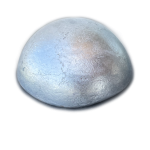
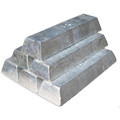
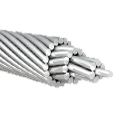
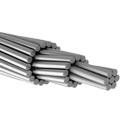
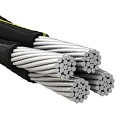
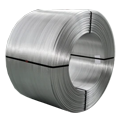
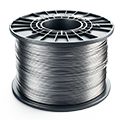
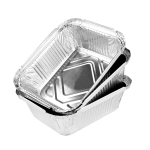








No comment